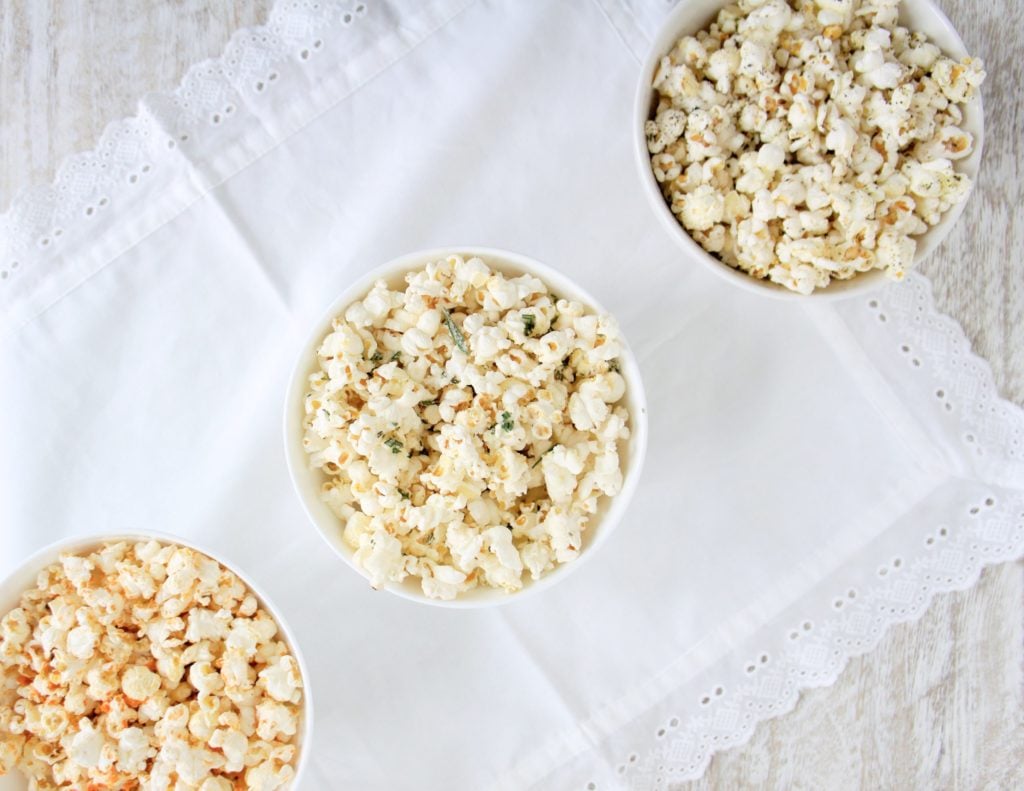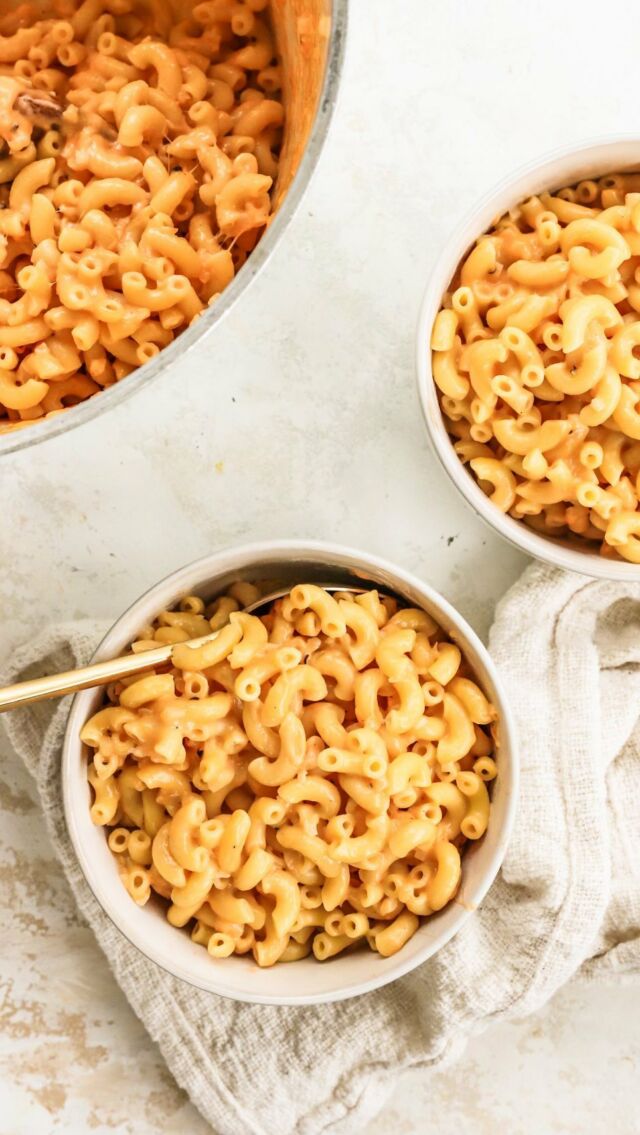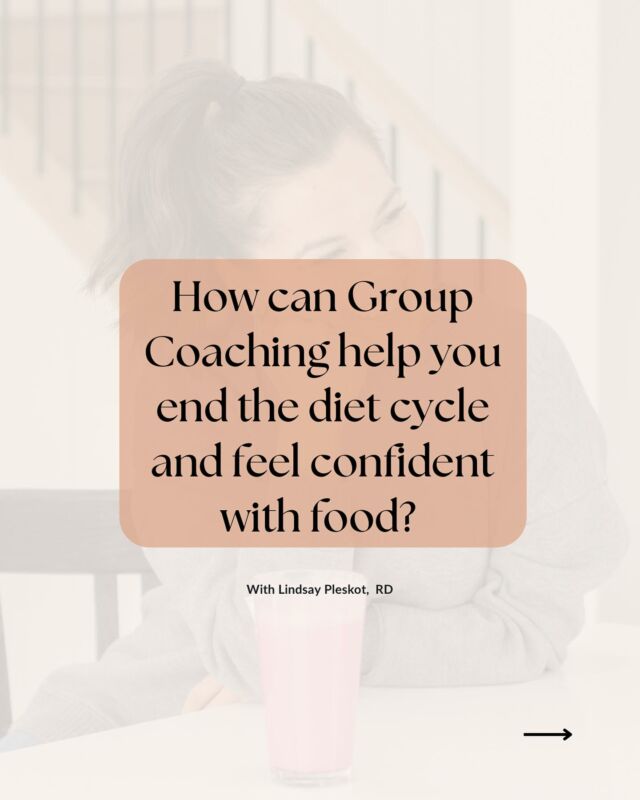You’ve been “good” all day, and then nighttime rolls around and you just can’t stop snacking! Sound familiar? This is not a matter of lack of willpower or “failing.” The answer to managing nighttime cravings will likely surprise you: It’s often about eating more — not enlisting your willpower to close the kitchen at 7pm on the dot! Read on for 5 dietitian tips to stop that out-of-control snacking at night.

Often when you google how to stop snacking at night, you’ll come up with a list of ideas like drink a glass of water, chew gum, or just eat carrot sticks instead (I don’t know about you but carrot stick just dooon’t quite cut it when that chip craving is real).
As a Registered Dietitian, the first thing I want you to know is that the goal actually isn’t to STOP snacking at night, but to understand why you’re eating so that you can make the right decision for you in that moment.
This might sound totally backwards, but the surprising reason you are most likely feeling out of control around food at night — and unable to stop snacking — is that you’re not eating enough! Read on to see what I mean.
The answer may surprise you, but it is likely due to not eating enough during the day! Read more about it here.
Instead of creating a hard and fast rule to stop snacking at night, get curious about why you’re eating. What you need if it’s true hunger, boredom eating or emotional eating are totally different! Read more about that here.
How to Curb Nighttime Snacking
As I mentioned above, we are often approaching this totally backwards. Rather than jumping to the assumption that there is something wrong with you when you feel hungry or snacky at night, approach it with mindfulness. Get curious about why you’re reaching for the snacks.
Did you know that there are actually three different types of hunger or craving? I first learned about this concept through Craving Change and it has been a game-changer for both me and my clients.
- Stomach hunger
- Mouth Hunger
- Heart Hunger
Learning how to identify and differentiate between them is so helpful because each of them ultimately has a different need. (I’ve got a whole blog post on the different types of hunger here if you want to dive a little deeper.)
When you learn to identify the different types, you can built out a “nourish menu” that allows you to give each type of hunger and craving exactly what it needs. Sometimes that will be food and other times you’ll realize it’s something totally different like having a bath, calling a friend or distracting yourself with Pinterest or a good show!
This can take practice but it is a game changer and so worth it!
Ready to Transform Your Relationship with Food?
Explore not just what you eat but why you eat, how you feel when you eat and any patterns that affect how you feel or impact any choices you make and start your journey to food freedom today!
Nighttime Cravings & Hunger
This is actually the most common culprit I see for out-of-control nighttime snacking and it is usually one of three things:
- Not eating enough during the day. (Are you restricting portions? Do you skip breakfast? Or maybe you just get so busy in the day you forget or don’t have time to eat!)
- Not eating balanced enough meals. Including protein, fat, and yes — carbohydrates! — provides longer lasting fuel and more steady blood sugars throughout the day. This is a major factor in eliminating out-of-control hunger and cravings!
- Not eating regularly enough during the day. This will look a bit different to everyone but I generally recommend eating about every 3-4 hours or 3 meals and 2-3 snacks per day. This allows for a steady stream of fuel, energy and blood sugars — again, preventing those intense hunger cues and cravings!
But what I always share with our Make Food Feel Good members is:
Always honour hunger.
When we are physically (stomach) hungry, our cravings will only continue to build and get stronger if our need is not met. In this case the need is food.
So making a hard and fast rule to stop snacking at night can actually totally backfire!
Rather than listening to your body, honoring that hunger, eating and feeling satisfied, and then moving on, it can easily turn into a binge.
Restriction, whether physical or mental, will eventually lead to overeating.
Nighttime Cravings & Emotional Eating (Heart Hunger)
Emotional eating is another struggle I see a lot with clients, often cropping up at night when we finally have the chance to sit down at the end of the day.
There is so much guilt and shame surrounding emotional eating. While you may not be used to hearing this, it is actually totally ok to find comfort in food.
What we want to look out for is whether food is our only coping strategy, in which case we want to be able to build out a toolbox of different options we can resort to, to truly serve our needs at the time.

Nighttime Cravings & Boredom
Boredom eating: we’ve all been there. There’s no doubt, there’s pleasure in food!
Again, there is truly no right or wrong reason to eat. What you want to look at is: how is it making you feel?
If you find yourself mindlessly snacking, only to come back to — and not even remember how you got to the bottom of — that chip bag, did it serve its purpose?
With boredom eating, again, it comes down to mindfulness:
Why am I eating? Is there a need going unmet?
It can also help to ask yourself this question: What is the most loving thing I can do for myself in this moment.
If you want to learn more about boredom eating, you can read this blog about how to stop eating when bored.
Ready to Transform Your Relationship with Food?
Explore not just what you eat but why you eat, how you feel when you eat and any patterns that affect how you feel or impact any choices you make and start your journey to food freedom today!
What to Eat at Night when Hungry
Well, in line with the rest of the messaging here — listen to your body!
What would taste good right now? What would feel good?
When looking to satisfy your hunger, I usually aim to pair a carbohydrate with either a fat and/or protein. This helps to balance blood sugars and leave you feeling satisfied afterward.
Here are some of my favorite nighttime snacks!
To sum it up: the next time you feel the pressure to stop the nighttime snacking, stop and assess.
- Use mindfulness to get curious about why you’re eating
- See if you can identify whether it’s stomach, mouth, or heart hunger
- Assume hunger first — and honor your hunger to prevent spiralling into out-of-control hunger
- If you discover there’s another need going unmet, ask yourself: What do I really need right now? What is the most loving thing I can do for myself in this moment?
- Consider creating a “nurture menu” with the ideas above so you have options to choose from when nighttime cravings arise!
The bottom line: there is absolutely nothing wrong with eating at night! There is no magic time that you need to stop eating. You and only you know what is right for your body!
I hope you found this post helpful! If you’ve got any questions, drop them in the comments below. And if you implement any of these strategies, be sure to tag me on Instagram @lindsaypleskot so I can celebrate with you!
Looking for more support?
If you’re looking for guidance on where to start with healing your relationship to food, fostering trust within yourself and your body, and building confidence in your everyday eating, we’d love to support you! Book in for an initial assessment or schedule a free discovery call to get started or join the waitlist for our next Make Food Feel Good sessions.









Leave a Comment & Rate this Recipe